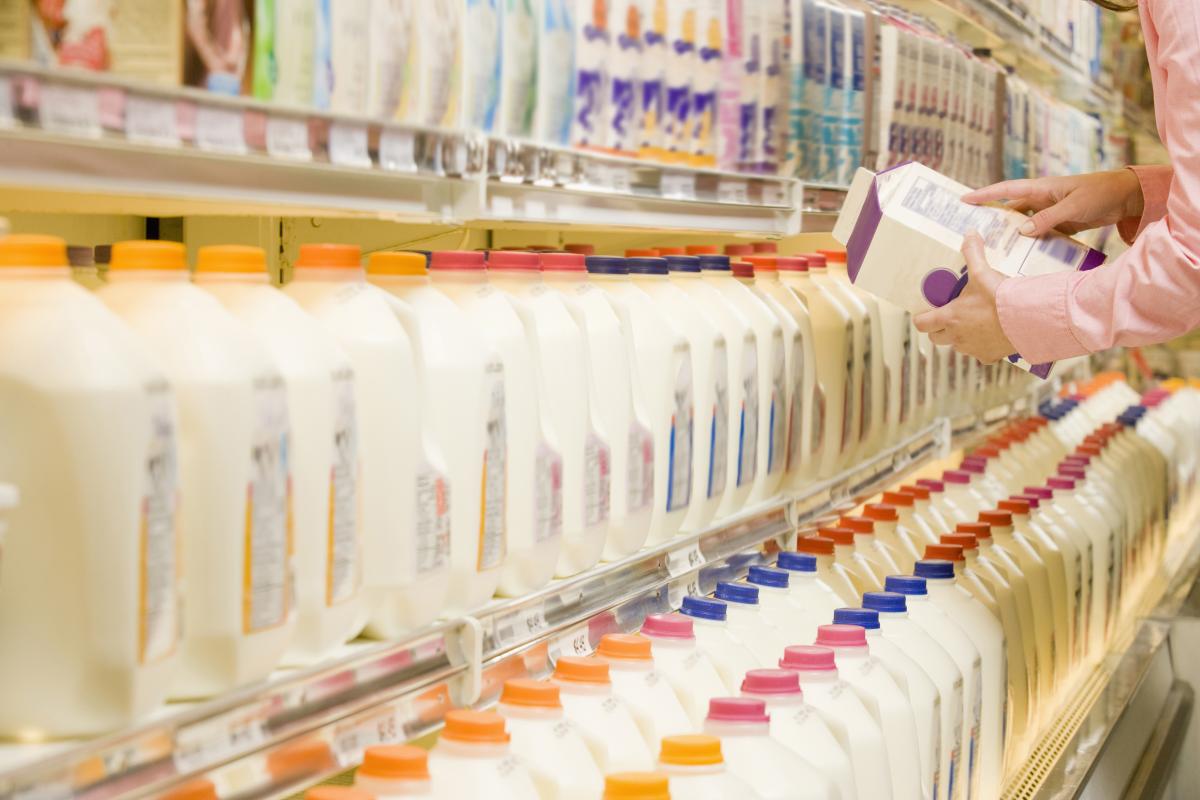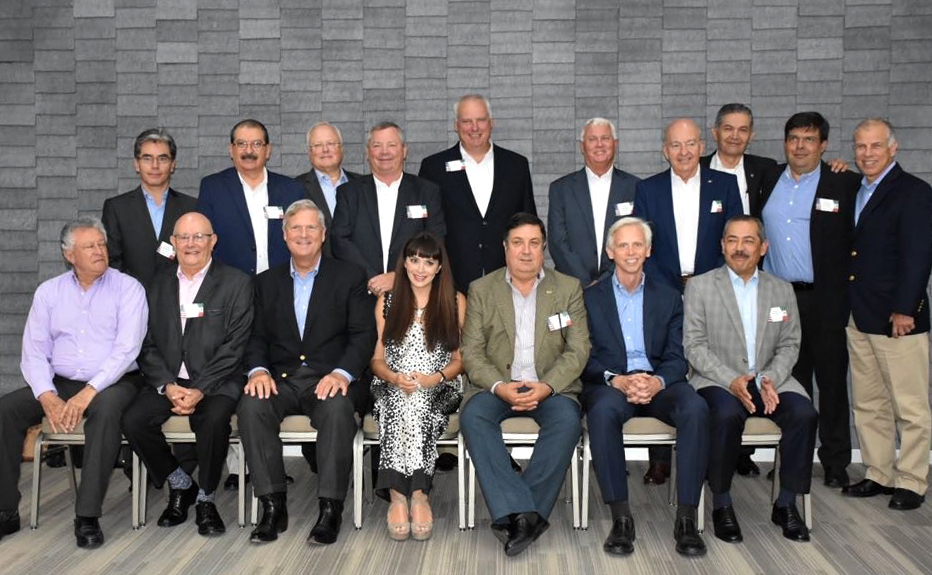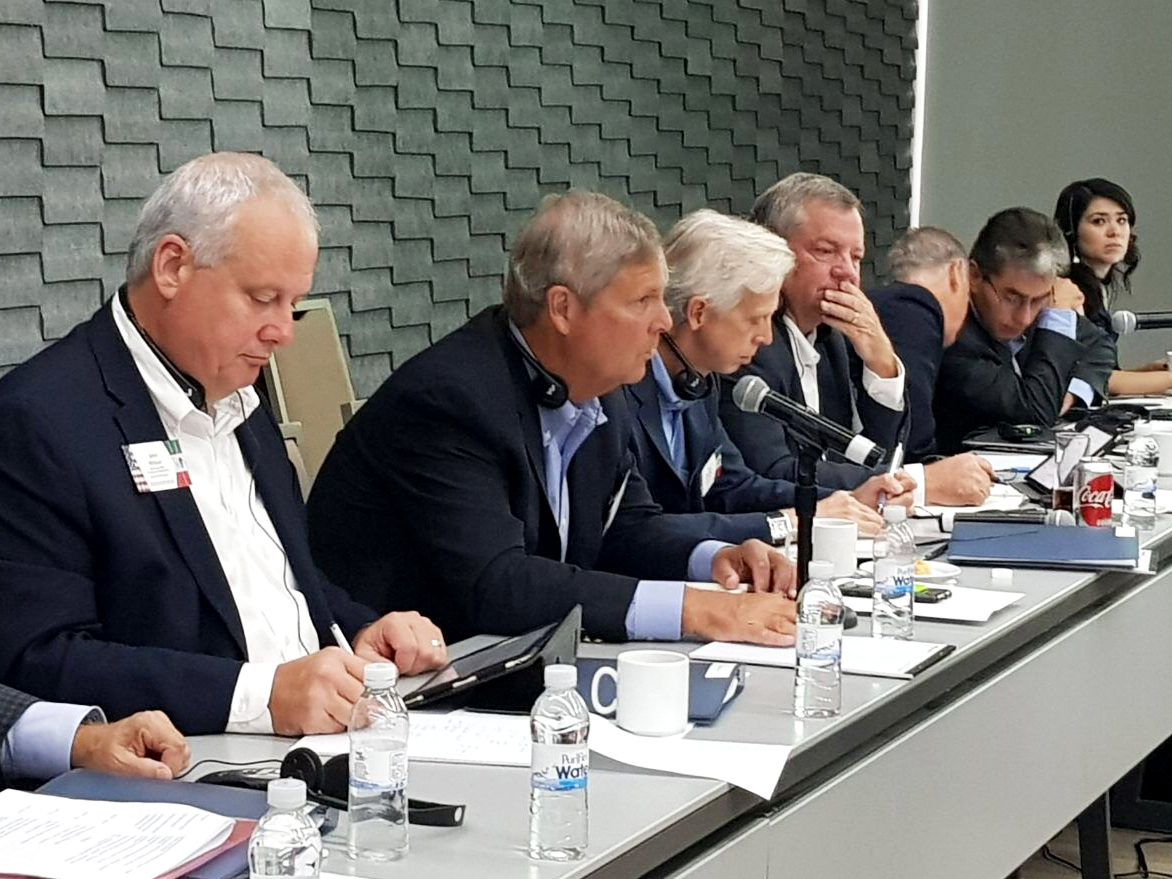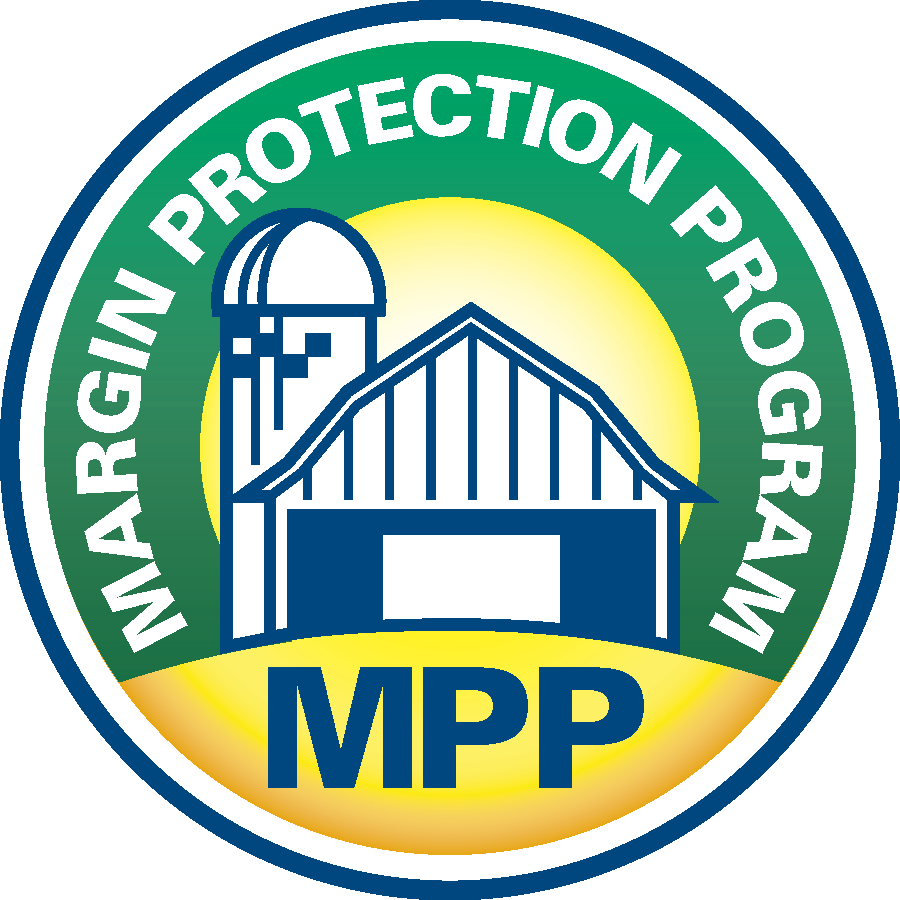 WASHINGTON, D.C. – As food manufacturers increasingly turn to fear-based food labeling to prop up profits and consumers face more confusion in the grocery aisles, America’s dairy farmers today launched “Peel Back the Label,” a new campaign to highlight this troublesome trend and stress the need for truth and transparency in food marketing.
WASHINGTON, D.C. – As food manufacturers increasingly turn to fear-based food labeling to prop up profits and consumers face more confusion in the grocery aisles, America’s dairy farmers today launched “Peel Back the Label,” a new campaign to highlight this troublesome trend and stress the need for truth and transparency in food marketing.
The campaign comes as almost 70% of consumers say they look to front-of-label claims when making food purchasing decisions, and as food manufacturers increasingly utilize “free from” labels – i.e. ”no high fructose corn syrup” or “GMO free” or “hormone-free”– to play on consumers food safety fears and misconceptions.
Nowhere is this fear-based marketing more rampant than with GMOs. For example:
- Hunt’s adding a “GMO-free” label to its canned tomatoes, even though there is no such thing as a genetically modified tomato currently on the market.
- Florida’s Natural adding a Non-GMO Project certification to its orange juice labels, despite the fact there are no commercially-grown, genetically modified oranges.
- Dannon adding a line of non-GMO yogurt, citing “sustainable agriculture, naturality and transparency,” but unable to point to any nutritional, environmental, health, or other consumer benefit.
- TruMoo milk acknowledges GMOs are safe on its website, while at the same time launching an advertising campaign for its milk with the tagline, “No GMOs, No Worries.”
- Himalania Rock Pink Salt adding a Non-GMO Project certified label, despite the fact that salt – a mineral – could never be GMO in the first place because it has no genes to modify.
“America’s dairy farmers strongly support open, honest and transparent engagement with consumers. The deceptive labels and fear-based marketing increasingly used by some food manufacturers damages consumer trust and jeopardizes the safe, sustainable farming practices that have enhanced farm productivity over the last 20 years,” said Jim Mulhern, President of the National Milk Producers Federation (NMPF). “Consumers have a right to both truth and transparency in food labeling. We launched this campaign to help consumers peel back the label on deceptive food marketing in the name of profits.”
This trend towards deceptive “free from” labels is particularly concerning for the dairy industry. Last year, NMPF and other leading farm organizations publicly raised concerns regarding Dannon’s announcement of its plans to eliminate GMOs from its products – saying the company’s decision was “the exact opposite of the sustainable agriculture that you claim to be seeking.”
Through the Peel Back the Label website, the campaign will give consumers access to the tools they need to separate hype from fact as they work to make informed food decisions for their families. It also will include ways for consumers to tell their own stories about the negative impacts of deceptive labeling, and share information with their social networks.
Concern about deceptive food labeling is widespread, with numerous voices from across the food sector calling out this troublesome marketing tactic. Examples include:
“This trend toward fear-based labeling may help prop up profits for food manufacturers, but it comes at a much greater cost for consumers who are trying to make informed choices for their families. Labels like these make consumers question their understanding of what’s really in their food and how safe it is to eat.” –Kent Messer, The Wilmington News Journal, 6/30/17
“If anything, the scaremongering around GMOs mistreats moms and their families by creating fear and mistrust of the conventional food supply in the absence of any scientific evidence. This can scare mothers on tight budgets to pay money they can’t afford for expensively labeled foods and to avoid fresh produce due to a misplaced fear of pesticides. Praying on a mother’s fears for the safety of her children is the most disingenuous use of marketing that I can imagine. “ –Alison L. Van Eenennaam, BioBeef Blog, 7/7/17
“Unfortunately, food manufacturers are being subjected to great public pressure to go ‘GMO-free,’ with brands like Dannon and Cheerios bowing to the pressure and shifting to sourcing only non-GMO ingredients. If this trend is allowed to continue, the impact on farmers, and in turn the environment, could be monumental. As champions of science continue to make their voices heard, it’s imperative to celebrate and acknowledge the promise of positive change embodied as technology being leveraged in multiple ways. If we allow science its chance at bat, we have a chance to win this.” –Tom Vilsack, The Hill, 4/27/17
“The people who push GMO labels and GMO-free shopping aren’t informing you or protecting you…They use your anxiety to justify GMO labels, and then they use GMO labels to justify your anxiety. Keeping you scared is the key to their political and business strategy.” –William Saletan, Slate, 7/15/15
“What really bothers me as a shopper are the injustices that result from the proliferation of this and other similar anti-GMO marketing…The [Non-GMO Project] seal implies that there are GMO oranges available even though there are no genetically-engineered citrus fruits on the market. Tomatoes, grapes, and sea salt are among several such products that carry the seal even though there are no ‘GMO’ counterparts available.” –Kavin Senapathy, Forbes, 5/31/17
About Peel Back the Label:
Peel Back the Label is a campaign of America’s dairy farmers and their families. In the United States, 97 percent of dairy farms are family owned, and farmers are committed to producing quality milk for American families, protecting the environment and caring for their animals. Learn more about the campaign at www.PeelBackTheLabel.org. Learn more about America’s dairy farmers at www.nmpf.org.
###
The National Milk Producers Federation (NMPF), based in Arlington, VA, develops and carries out policies that advance the well-being of dairy producers and the cooperatives they own. The members of NMPF’s cooperatives produce the majority of the U.S. milk supply, making NMPF the voice of dairy producers on Capitol Hill and with government agencies. For more on NMPF’s activities, visit our website at www.nmpf.org.
 As the U.S. Department of Agriculture (USDA) prepares to develop a regulatory standard for the labeling of bioengineered food ingredients, it must ensure that consumers receive clear, accurate information about the foods they eat, NMPF told the agency last month.
As the U.S. Department of Agriculture (USDA) prepares to develop a regulatory standard for the labeling of bioengineered food ingredients, it must ensure that consumers receive clear, accurate information about the foods they eat, NMPF told the agency last month.
 At a time when dairy exports play a growing role in boosting U.S. dairy farmers’ incomes, NMPF has been engaged on several fronts to defend access to Mexico, its largest export market, including during a high-level industry meeting last month.
At a time when dairy exports play a growing role in boosting U.S. dairy farmers’ incomes, NMPF has been engaged on several fronts to defend access to Mexico, its largest export market, including during a high-level industry meeting last month.
 The U.S. Department of Agriculture (USDA) responded to requests from NMPF to allow farmers more flexibility in the use of risk management tools by announcing on Aug. 31 that dairy farmers currently enrolled in the Margin Protection Program (MPP) can opt out of it in 2018.
The U.S. Department of Agriculture (USDA) responded to requests from NMPF to allow farmers more flexibility in the use of risk management tools by announcing on Aug. 31 that dairy farmers currently enrolled in the Margin Protection Program (MPP) can opt out of it in 2018. In response to requests from NMPF and other farm groups, House Judiciary Committee Chairman Bob Goodlatte (pictured right) plans to introduce the Agriculture Guestworker (AG) Act in the near future, a new approach to resolve many of the labor challenges facing dairy farmers. Chairman Goodlatte has long been a strong supporter of the need to create a viable guest worker program for the agriculture community, and has worked with National Milk to ensure his new legislation will address the unique challenges that the dairy industry faces in obtaining farm workers.
In response to requests from NMPF and other farm groups, House Judiciary Committee Chairman Bob Goodlatte (pictured right) plans to introduce the Agriculture Guestworker (AG) Act in the near future, a new approach to resolve many of the labor challenges facing dairy farmers. Chairman Goodlatte has long been a strong supporter of the need to create a viable guest worker program for the agriculture community, and has worked with National Milk to ensure his new legislation will address the unique challenges that the dairy industry faces in obtaining farm workers.
 WASHINGTON, D.C. – As food manufacturers increasingly turn to fear-based food labeling to prop up profits and consumers face more confusion in the grocery aisles, America’s dairy farmers today launched “
WASHINGTON, D.C. – As food manufacturers increasingly turn to fear-based food labeling to prop up profits and consumers face more confusion in the grocery aisles, America’s dairy farmers today launched “



